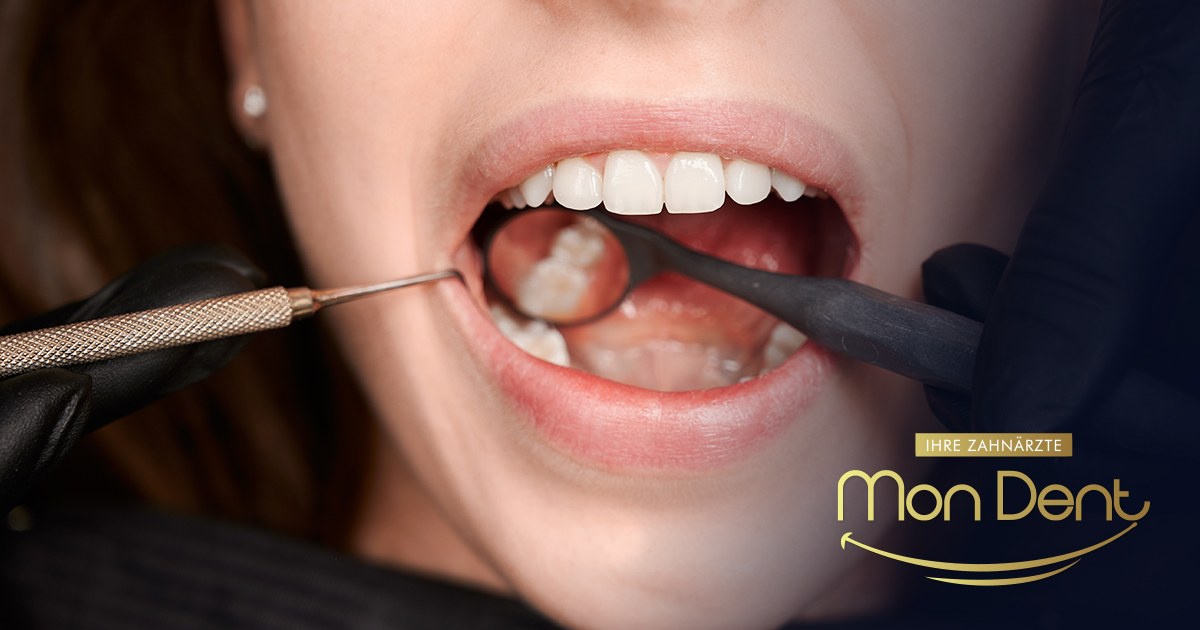Content:
- What is caries and how does it occur?
- What does caries look like?
- Why is it important to treat caries on time?
- Caries in children
- Prevention of caries
- Conclusion
Tooth decay is one of the most common dental diseases in the world, and almost everyone has experienced it at least once. However, there are many misconceptions and questions about tooth decay – from how it occurs, how to recognize it, to how to prevent it, especially in children.
Below we reveal 5 key things you need to know about tooth decay. You will learn what tooth decay is and how it occurs. tooth decay, what it looks like in different stages, why it is important to treat it on time, what to pay attention to when it comes to caries in children, and how you can prevent this common occurrence. Arm yourself with the knowledge that will help you keep your smile healthy and bright!
If you notice any changes in your tooth, contact our MonDent dental office and our team will do everything necessary to keep your teeth healthy and beautiful!
1. What is caries and how does it occur?
Caries is the process of gradual destruction of dental tissues caused by the action of bacteria. In simple terms, it occurs when plaque accumulates on the teeth. dental plaque – a sticky layer full of bacteria – which, in the presence of sugar, produce acids. These acids slowly eat away at the protective layer of the tooth (tooth enamel), leading to demineralization and damage to the tooth structure. Over time, a small hole forms at the site of the damage, which gradually spreads towards the inside of the tooth.
Its development is influenced by several factors, but the most important are poor oral hygiene and a diet rich in sugars. Bacteria in the mouth they like sugar just like us – every time we eat something sweet, they produce acids that attack the enamel of our teeth. If teeth are not cleaned regularly, plaque deposits build up and the acids have a prolonged effect, increasing the chance of it appearing.
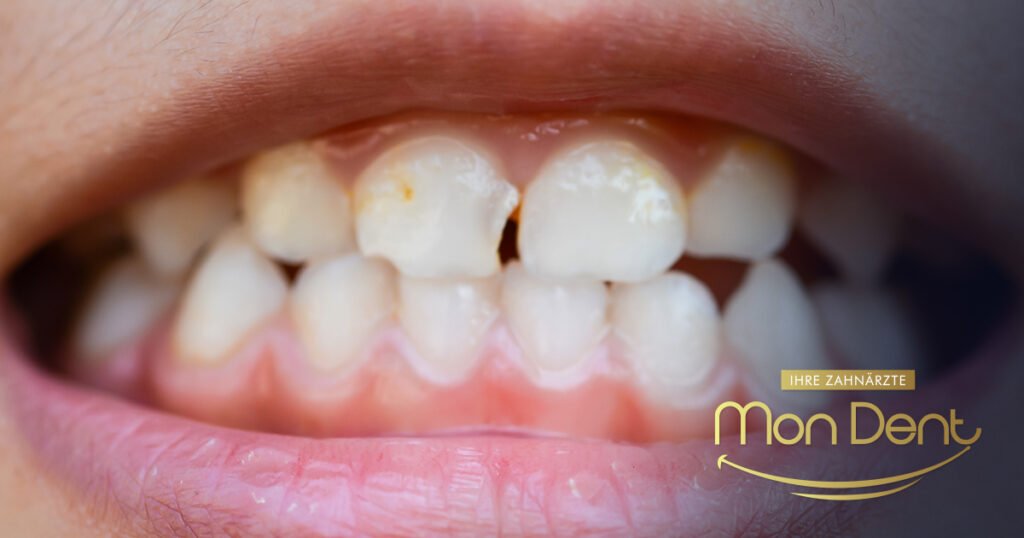
It is important to know that damage from cavities cannot be repaired on its own – once the enamel has decayed, the body cannot repair it on its own. In the early stages, the process can be slowed or stopped by increased hygiene and fluoridation, but if a cavity has already formed, dental treatment will be necessary. Therefore, it is better to prevent cavities with good habits than to repair the damage later.
2. Early signs – what does tooth decay look like?
Many people think they will notice tooth decay immediately, but the truth is that in the early stages it often goes unnoticed. unnoticedThe first stage may manifest as chalky white spot on enamel – an area where minerals have been stripped from the tooth by acids. This initial lesion is not yet a true “hole” and can sometimes remineralize (harden) and stop with better hygiene. However, if nothing is done, the white spot darkens to a yellowish or brown color over time as the decay deepens into the dentin (the layer beneath the enamel). Eventually, a cavity forms – a visible hole in the tooth, often dark brown or black.
In addition to changes in the appearance of the tooth, there are other signs. At first, you may not feel any symptoms. As it progresses, the tooth may become sensitive to touch, certain foods, or temperature. Therefore, do not ignore changes and tooth sensitivity, but contact your dentist who will clearly explain what is going on. You may also experience pain when biting or spontaneous toothache if the damage is deep.
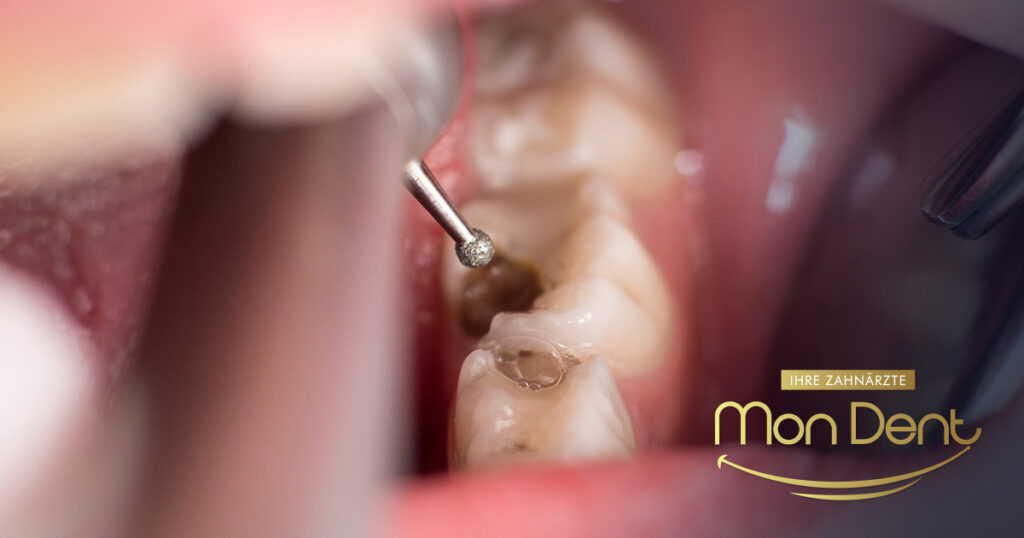
Here are the most common signs that indicate that a tooth may be developing cavities:
- White or brownish spots on the enamel that do not disappear even after washing (early stage of demineralization).
- Tooth sensitivity to cold, warm or sweet stimuli.
- Pain or discomfort when biting into food and occasional spontaneous toothache.
- Visible hole or dark colored spot on the surface of the tooth that you can see with a mirror.
Keep in mind that tooth decay is not always visible to the naked eye. It can often be to develop secretly between the teeth or under an existing filling, where you won't notice it until it causes symptoms. That's why regular check-ups are important - your dentist can spot early decay with special instruments or by X-rayWith regular check-ups and imaging, it is possible to detect and treat cavities before you feel pain or notice any major damage.
3. Why is it important to treat it on time?
When it first appears, the repair is the simplest – the defect is cleaned and the hole is filled with material (filling). However, if you postpone going to the dentist, that small hole will get bigger and bigger. It penetrates from the enamel into the dentin, approaches the tooth nerve (pulp) and over time can lead to in severe pain and tooth infections. Untreated tooth decay is also the most common cause of toothache. So a small defect, which could be easily repaired, can develop into a major damage that requires more complex treatment.
Treatment of advanced caries often involves endodontic therapy, known as root canal treatment. This means that the dentist will have to remove the infected nerve tissue from the tooth (called a “nerve extraction”) in order to save the tooth. This procedure is much more complex and time-consuming than a regular filling.
In the worst cases, when the tooth is so damaged that it cannot be saved, the only solution is to extract the tooth. Tooth loss then necessitates the need for prosthetic replacement (bridge, implant), which is incomparably more expensive and demanding than a single filling. It is clear, therefore, that postponing therapy is not a good idea.
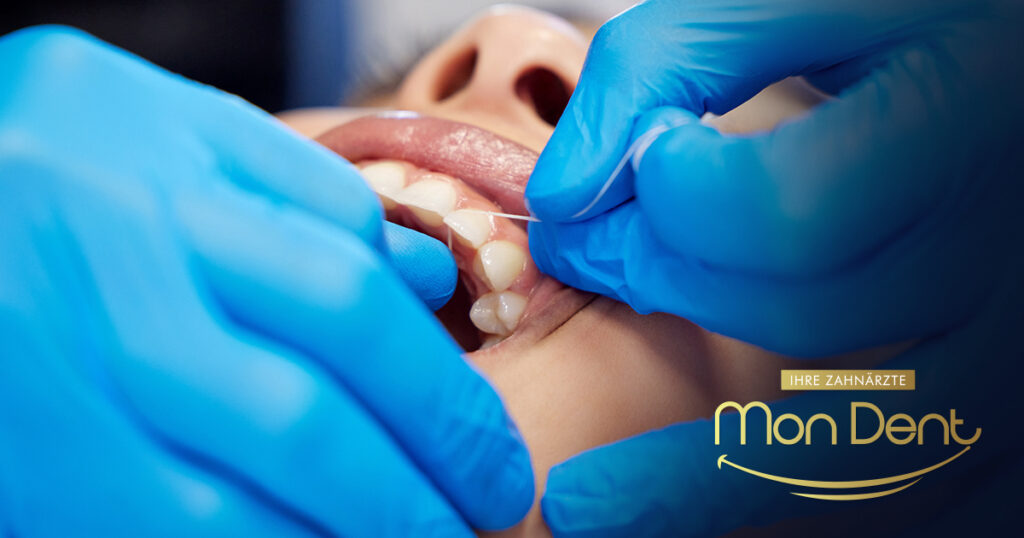
On the other hand, timely treatment of caries is quick, simple and painless. Modern treatment is part of routine dental procedures – the defect is removed by drilling under local anesthesia (so that the patient does not feel anything), and then the damaged part is replaced with a tooth-colored composite filling.
So, there is no reason to fear or postpone a visit to the dentist. The sooner you contact the dentist, the less invasive and more pleasant the intervention will be. This way, you will avoid complications, higher costs, and unnecessary pain in the future.
4. Cavities in children – pay attention to baby teeth too
Parents sometimes think that tooth decay in baby teeth is not a big problem because those teeth will fall out anyway. The truth is, however, that baby teeth extremely important for the child's health and the proper development of permanent teeth.
Tooth decay in children can progress much more quickly than in adults because the enamel of baby teeth is thinner, and children often do not know how to brush their teeth thoroughly. If tooth decay is left untreated, the child may suffer pain and have difficulty eating and sleeping. A decayed baby tooth can also lead to infection, which threatens the development of the permanent tooth underneath.
In addition, premature loss of a baby tooth due to caries can cause orthodontic problems – neighboring teeth can shift into the empty space and make it difficult for permanent teeth to erupt later.
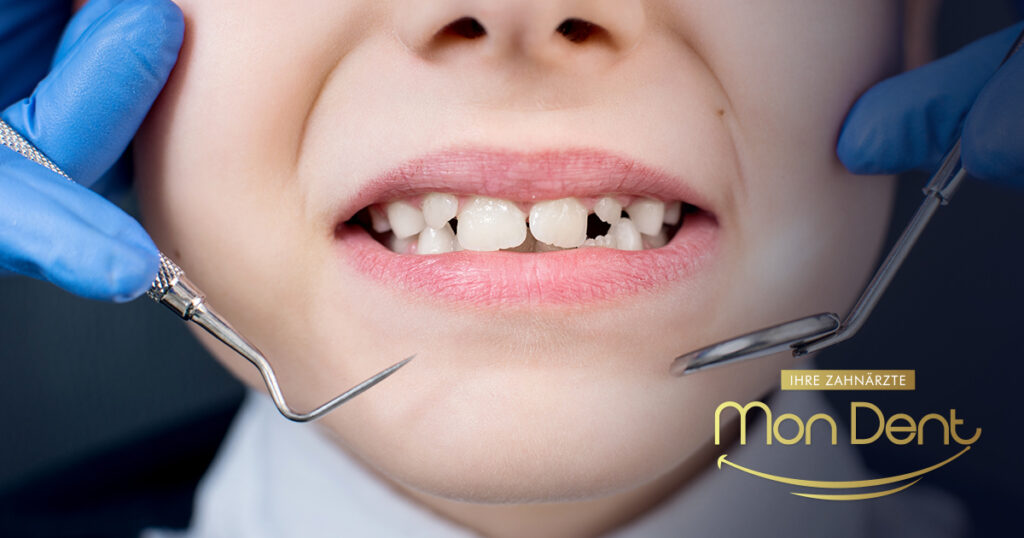
One special form of childhood caries is the so-called bottle cavity (circular caries in babies). It occurs when a child falls asleep with a bottle of milk, juice or sweetened tea in their mouth. During the night, the sugar-rich liquid remains around the teeth and feeds bacteria, which results in accelerated decay of the upper front teeth (incisors). That is why pediatricians and dentists advise not to put babies to sleep with a bottle of sweetened drinks, and to wipe their teeth or gums with a damp cloth or soft toothbrush after the last evening meal.
Dental hygiene in children
Prevention and early intervention are the keys to a healthy smile for children. As soon as the first teeth appear, they should be cleaned with a soft toothbrush for children or gauze.
Toddlers should be introduced to oral hygiene as early as possible – with parental supervision, children can learn to brush their teeth from a young age. It is also helpful to limit sweets and sodas, and to make sure that the child is not constantly snacking between meals. Regular check-ups with a pediatric dentist can prevent a small cavity from becoming a big problem. The first check-up is recommended around the child's first year of life, and no later than their third birthday, so that the child gets used to the dentist's office and any potential problems can be detected in time.
It is important to choose a dentist who has patience and experience working with children. Within our pediatric dentistry, we have made an effort to create a pleasant environment for our youngest patients. With a special approach, a lot of patience and a little play, even going to the dentist can be a pleasant experience for a child.
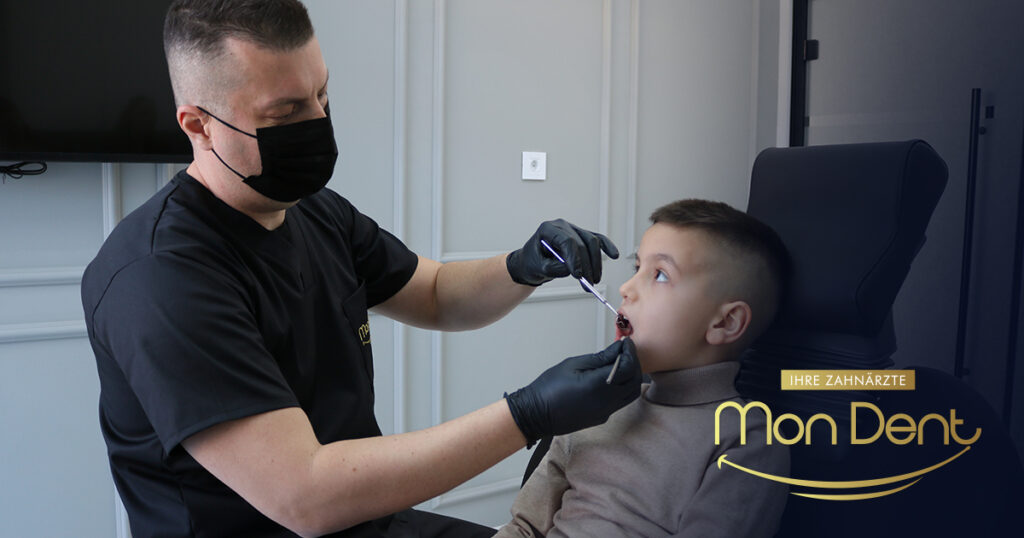
If caries in children is detected and treated promptly, baby teeth will retain their function until the change of dentition (the replacement of baby and permanent teeth), and your child will avoid unnecessary pain and complications.
5. Caries prevention – the best defense
Although tooth decay is very common, the good news is that it can be largely prevented. preventBy adopting healthy habits from early childhood, you significantly reduce the risk of developing it. Prevention not only keeps your teeth healthy and beautiful, but in the long run it will save you time, money and the inconvenience of treatment.
Basic tips for preventing caries:
- Regular and proper oral hygiene: Brush your teeth at least twice a day with a soft toothbrush and fluoride toothpaste. A thorough cleaning before bed is especially important, as there is no saliva flow to wash your teeth during the night. In addition to brushing, use dental floss or interdental brushes at least once a day to remove plaque between your teeth.
- Balanced diet with little sugar: Try to limit your consumption of sweets and sweetened drinks, especially between meals. Sugars fuel the bacteria that cause cavities, so it's best to have sweets as a dessert. after main meal (when saliva helps neutralize acids), rather than snacking on them constantly throughout the day. After a sweet meal, it is helpful to rinse your mouth with water or chew sugar-free gum to neutralize the acids.
- Fluoride and protective treatments: Fluoride helps teeth resist cavities. Use a fluoride toothpaste every day. Your dentist may also recommend professional fluoride treatments (coating your teeth with fluoride gel) for extra protection, especially for children. There are also preventive measures available for children, such as: fissure sealing – a thin protective layer that is placed on the chewing surfaces of new permanent teeth, preventing bacteria from remaining in deep fissures.
- Regular dental checkups: Don't skip your 6-month check-up with your dentist. Your dentist can spot cavities that you can't see and treat them right away. Regular professional teeth cleaning (scaling and plaque removal) at the office is also extremely important. Even with good home hygiene, tartar builds up over time and you can't remove it yourself. Professional tartar removal removes hard plaque that irritates your gums and harbors bacteria. This simple procedure twice a year can dramatically reduce your risk of cavities and gum disease.
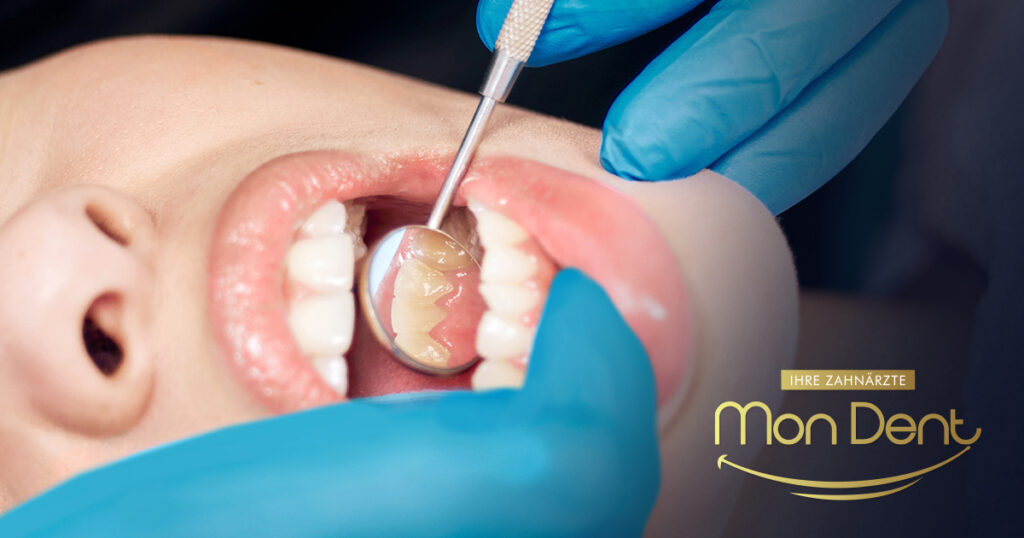
A combination of these preventive measures will keep your teeth healthy and strong in the long run. Remember, it's easier to prevent cavities than to treat decay once it's already there – so make sure you give your teeth the care and attention they deserve every day.
Conclusion
Through these five points, we have become better acquainted with what tooth decay is, how it occurs, and how it affects our teeth, whether in adults or children. Most importantly, we have learned that it can be largely avoided with good habits and regular visits to the dentist. Although it sounds simple, routines such as regular brushing, flossing, avoiding excessive sugar intake, and getting checked every six months really do wonders for the health of your teeth.
If tooth decay does occur, there is no need to panic – modern dentistry has effective solutions to heal the tooth quickly and painlessly. It is important to react in time and seek professional help as soon as you notice signs of it or feel a toothache.MonDent The team is at your disposal for all questions, advice and treatments related to caries and oral health. Don't hesitate – contact us and schedule an inspectionTogether we will make sure your smile stays healthy, beautiful and radiant!





